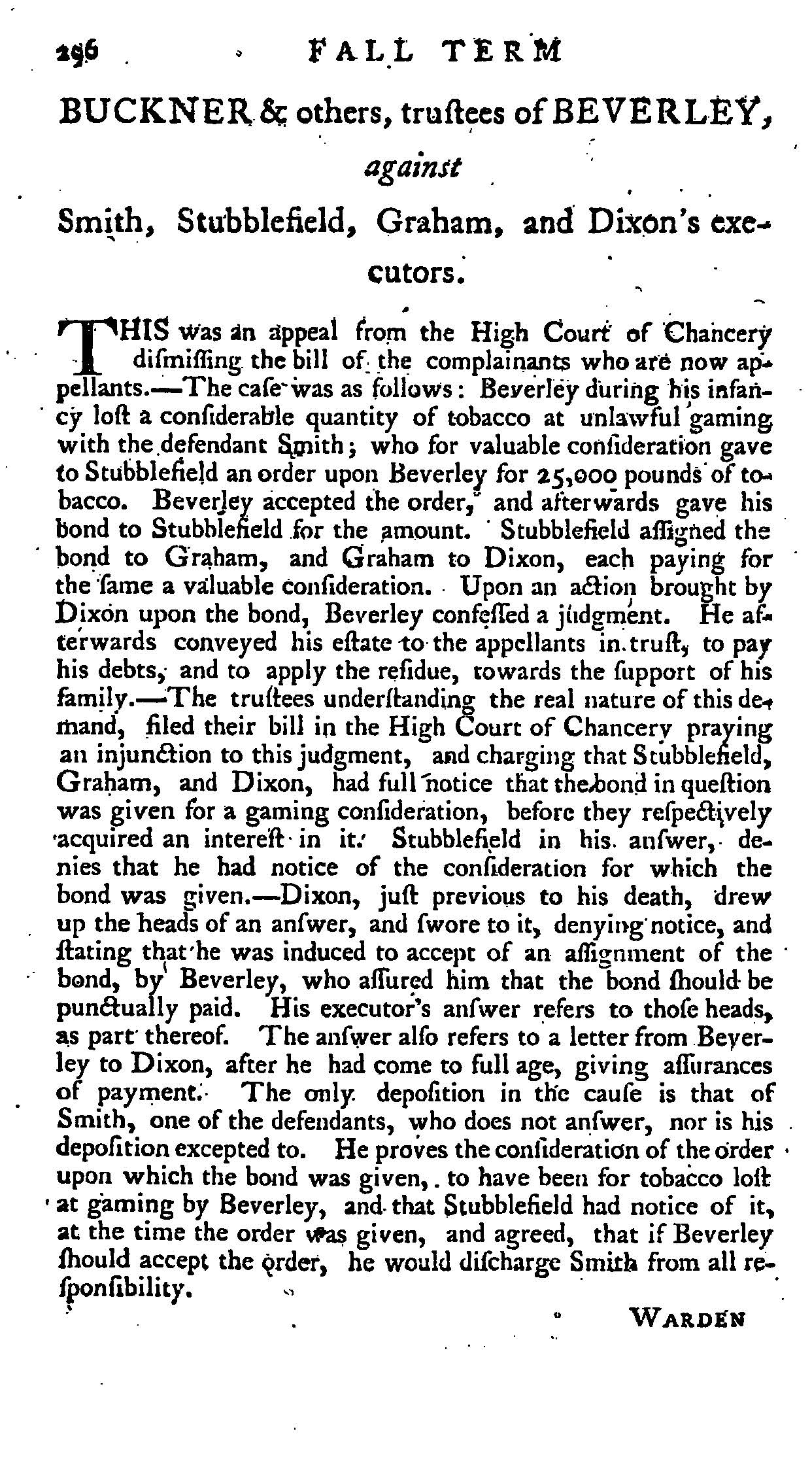Buckner v. Smith

In Buckner v. Smith, 1 Va. (1 Wash.) 296 (1794),[1] the court determined whether a creditor could collect an illegal gaming debt against a minor, who lied about his age at the time of the debt.
Background
Beverley, a minor at the time, lost a large amount of money in unlawful gaming with Smith. Smith gave a valuable consideration to Stubblefield to collect on Beverley’s debt. This debt was then assigned to Graham, and then to Dixon. By the time Beverley became of age, Dixon sued Beverley to collect the debt. Beverley confessed to the judgment and reassured Dixon he would pay. As a result, Beverly established a trust to pay off his debt. The trustees of Beverley’s estate, including Trustee Buckner, knew the nature of the debt arose from illegal gaming and filed an petition in the High Court of Chancery. The petition prayed the court to order an injunction against Dixon's money judgment and relinquish Beverley from all fiscal responsibility. The trustees alleged that Dixon had notice of the illegal nature of the debt and should not be able to recover.
The Court's Decision
Chancellor Wythe dismissed the case. The Court of Appeals affirmed the decision. The Court reasoned that Beverley’s fraud as a minor caused the underlying issue. In addition, the Court found that Beverley’s acceptance of the judgment, particularly after receiving an opportunity to raise his infancy defense, meant that Beverley guaranteed to pay the debt.
See also
References
- ↑ Bushrod Washington, Reports of Cases Argued and Determined in the Court of Appeals of Virginia, (Richmond: T. Nicolson, 1798), 1:296.